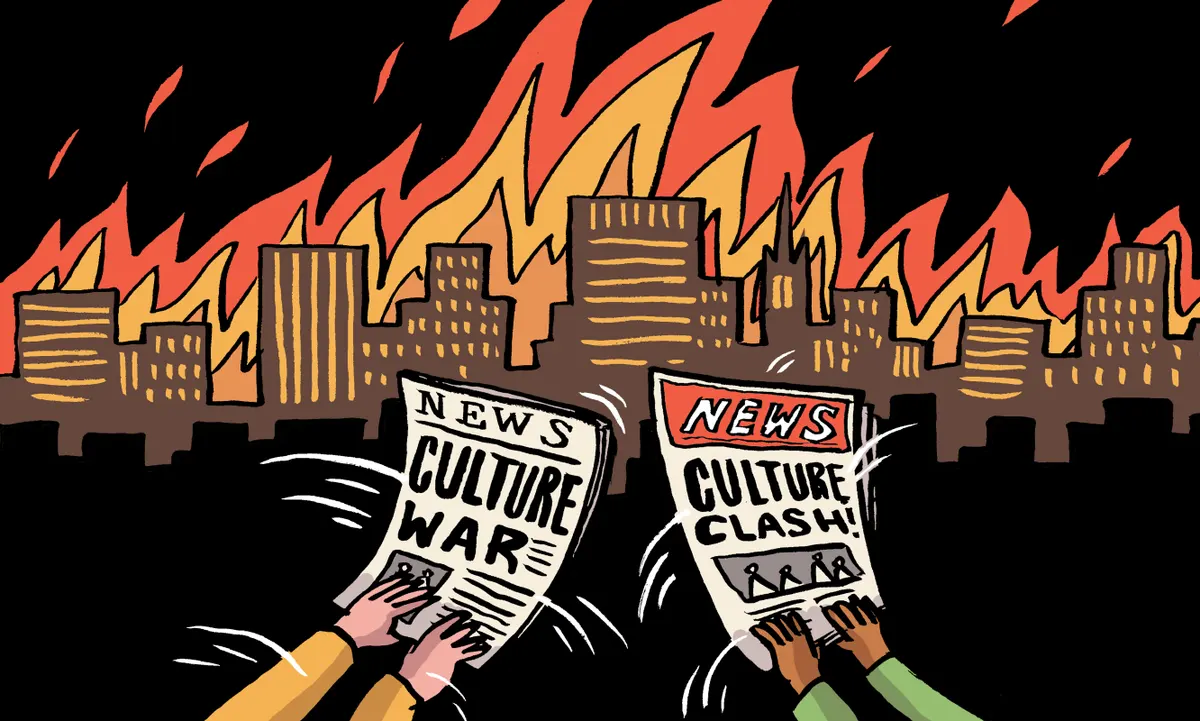Perennial questions about feminism and equality have long been at the forefront of societal discussions. As we navigate the 21st century, it becomes crucial to assess the progress made in achieving gender equality and parity, considering the struggles faced by women throughout the 20th century. While significant milestones have been achieved, it is essential to recognize that the culture war has transformed into a gender war, demanding our attention and action.
The Current Landscape
The erosion of women’s rights
In a disheartening turn of events, the right to an abortion, which has been a fundamental aspect of women’s reproductive autonomy, is no longer guaranteed for women in the United States. This setback raises concerns about women’s ability to make decisions about their own bodies and healthcare. As certain states curtail reproductive rights, others like Oregon have become havens for women seeking to protect their right to choose.
Gender as a battleground in the culture war
The culture war has found a new battlefield, centering around questions of gender. One group facing unwarranted targeting is drag performers. These talented individuals, who have long been part of LGBTQ+ culture and entertainment, are falsely accused of “grooming” children. Such misconceptions perpetuate discrimination and hinder the progress toward a more inclusive society.
Additionally, legislation is being introduced in various states that places limits on the types of care physicians and other healthcare providers can offer to patients, particularly children experiencing gender dysphoria. These limitations not only restrict access to necessary care but also disregard the mental well-being of individuals who are already vulnerable.
The Irony and Real Concerns
The incongruity of political battles
In examining neighboring Idaho, the contradictions become apparent. While the state has previously emphasized parental decision-making power regarding children’s health, especially in the context of vaccinations, it seems to fall short when it comes to parents seeking help for their children with gender dysphoria. The Idaho House recently passed a bill that criminalizes gender-affirming care for minors. However, this bill may face constitutional challenges, yet its mere existence reflects the growing influence of gender as a focal point in the culture war. It is ironic that battles fought for political gain overshadow the urgent concerns affecting child-bearing individuals and their children.
Neglecting pressing issues
While the culture war dominates headlines, it diverts attention from the pressing problems that demand immediate action. Child care across the United States remains scarce, posing significant challenges for working parents. Schools are in dire need of updates and increased funding to ensure a quality education for all children. Furthermore, the maternal mortality rate in the United States continues to rise, disproportionately affecting low-income and BIPOC women. If politicians genuinely prioritize the welfare of children and their parents, they must allocate resources and enact policies that address these urgent issues.
Moving Beyond Diversion
Shifting focus to real problems
It is time to redirect our attention from the culture war’s distractions to the pressing problems that affect the well-being of individuals and communities. We must invest in comprehensive child care services that enable parents to thrive in their careers while providing a nurturing environment for their children. Adequate funding and updates are essential for schools to deliver a quality education that prepares our nation’s kids for the future. Additionally, urgent action must be taken to address the alarming maternal mortality rate, ensuring equitable healthcare access for all women.
Conclusion
The culture war has transformed into a gender war, amplifying the struggles for equality and parity in the 21st century. While milestones have been achieved, recent developments have threatened women’s reproductive rights and perpetuated discrimination against gender minorities. It is crucial to recognize the irony of politicians prioritizing divisive battles while neglecting urgent issues such as child care, education, and maternal health. By shifting our focus and resources towards these real problems, we can foster a more equitable and inclusive society for all.
Frequently Asked Questions (FAQs)
- Why is gender such a contentious issue in the culture war? Gender is at the center of societal norms, power dynamics, and individual identity. It intersects with various aspects of our lives, making it a focal point for cultural debates and political discourse. Consequently, disagreements regarding gender norms, gender identity, and gender-related policies contribute to the intensity of the culture war.
- What are the potential consequences of restricting reproductive rights? Restricting reproductive rights can have severe consequences for women’s autonomy and overall well-being. It can lead to unsafe and illegal abortions, endangering women’s lives. Additionally, limiting access to reproductive healthcare hampers women’s ability to make informed choices about their bodies and futures, impacting their educational, professional, and personal aspirations.
- Why are drag performers targeted in the culture war? Drag performers are sometimes targeted due to misconceptions and stereotypes perpetuated by certain groups. Some falsely claim that drag performers are “grooming” children, using this as a basis for discrimination and attempts to limit their freedom of expression. In reality, drag is an art form that has been a part of LGBTQ+ culture and entertainment for decades.
- What are the potential consequences of limiting gender-affirming care for minors? Limiting gender-affirming care for minors can have detrimental effects on their mental health and well-being. It denies them access to crucial support systems, potentially leading to increased rates of depression, anxiety, and self-harm. Providing appropriate care and support is essential for the healthy development and happiness of gender-diverse youth.
- How can we address the pressing issues of child care, education, and maternal health? Addressing these pressing issues requires concerted efforts from policymakers, communities, and individuals. Governments must prioritize funding and creating policies that support accessible and affordable child care services. Education systems need adequate resources and updates to provide quality education to all children. Improving maternal health requires equitable access to healthcare services, prioritizing the needs of low-income and BIPOC women.

